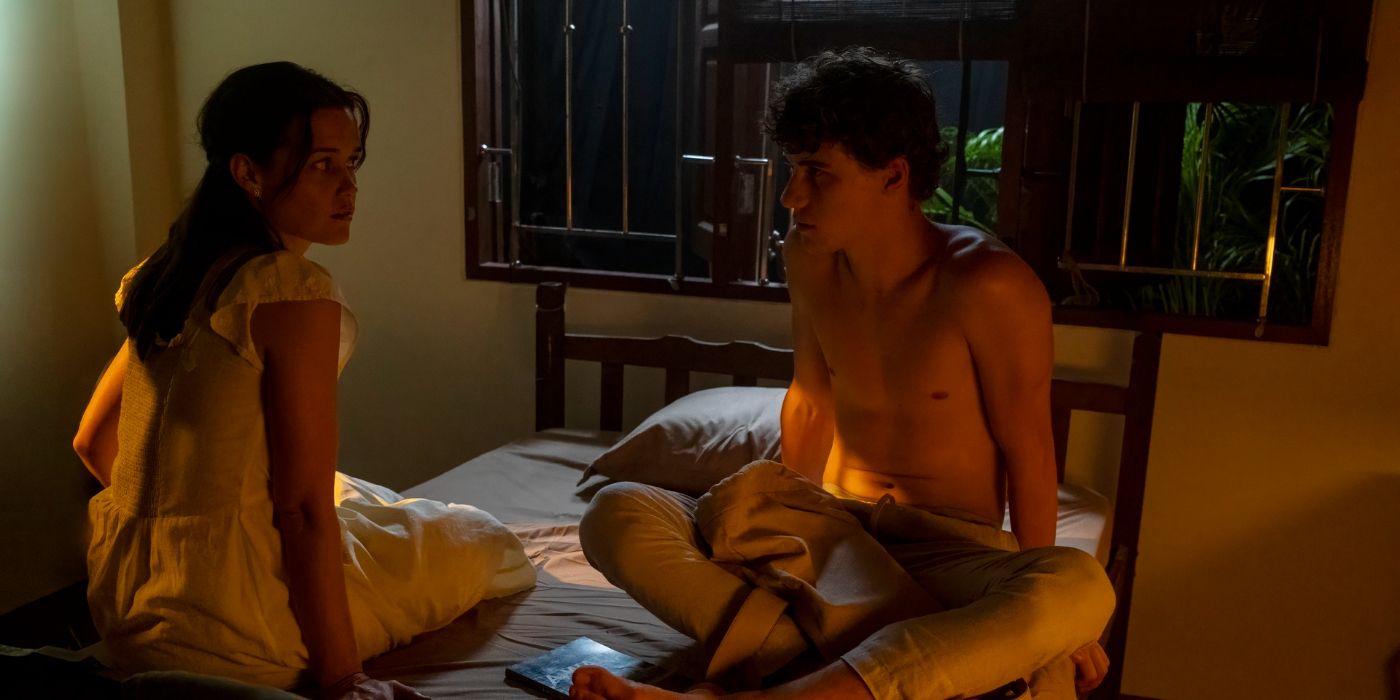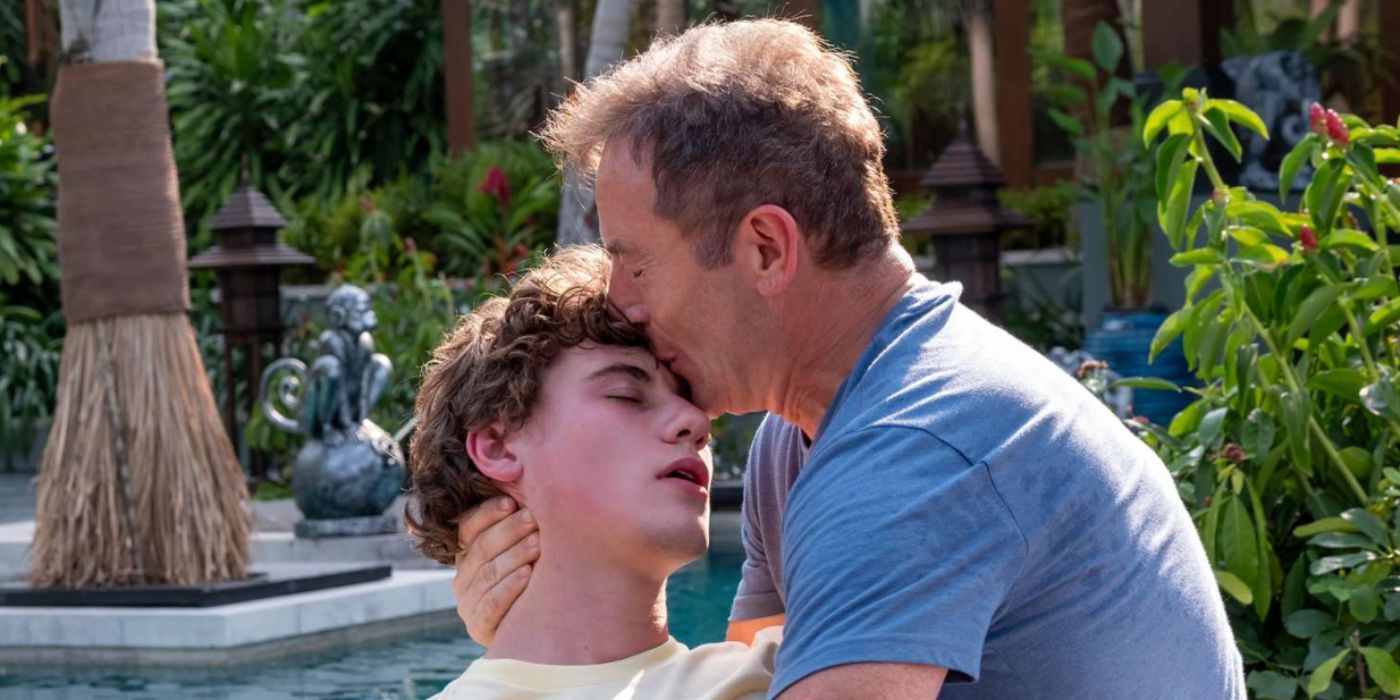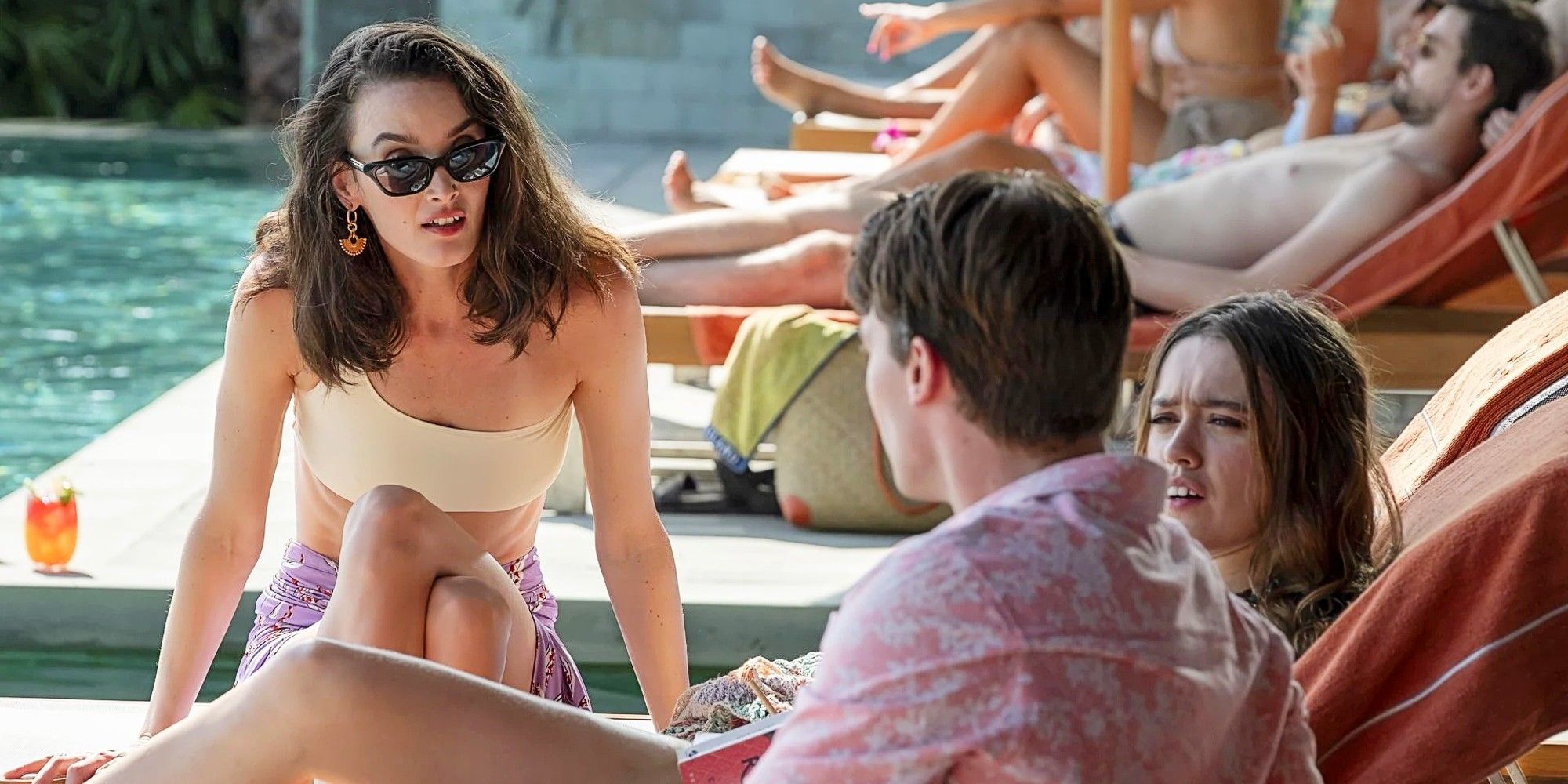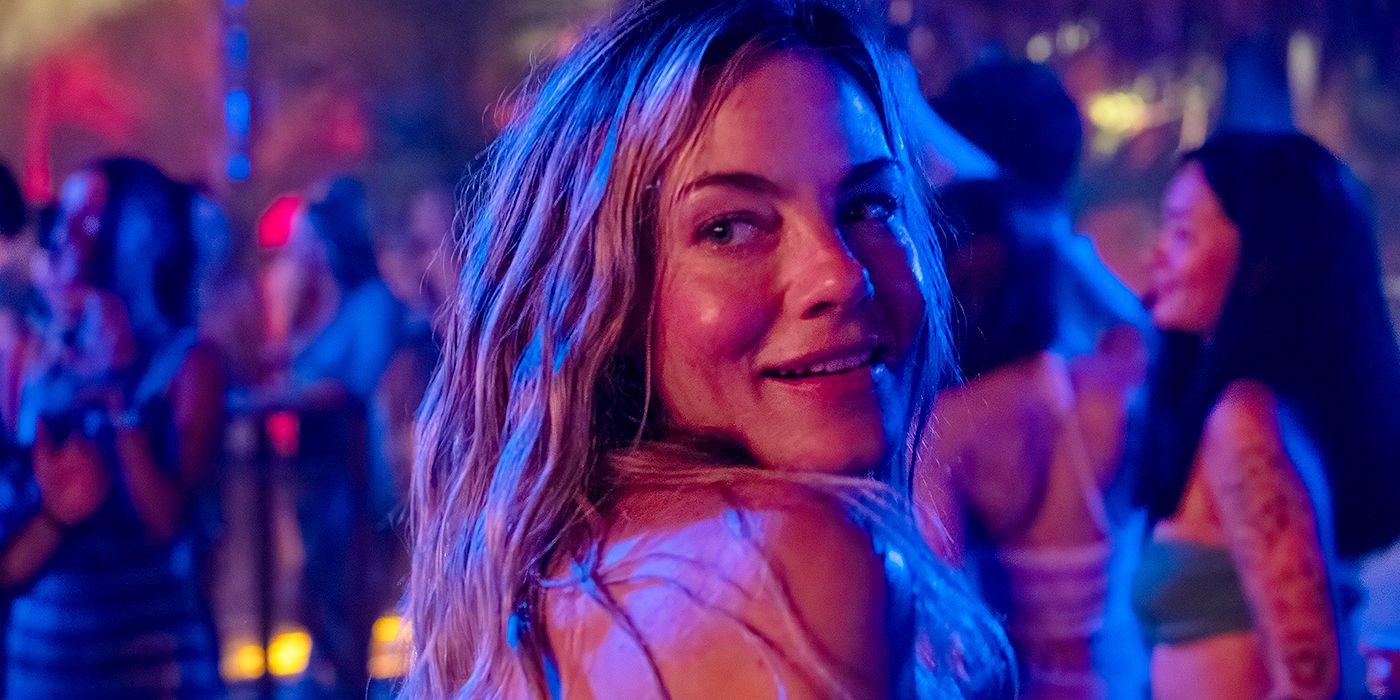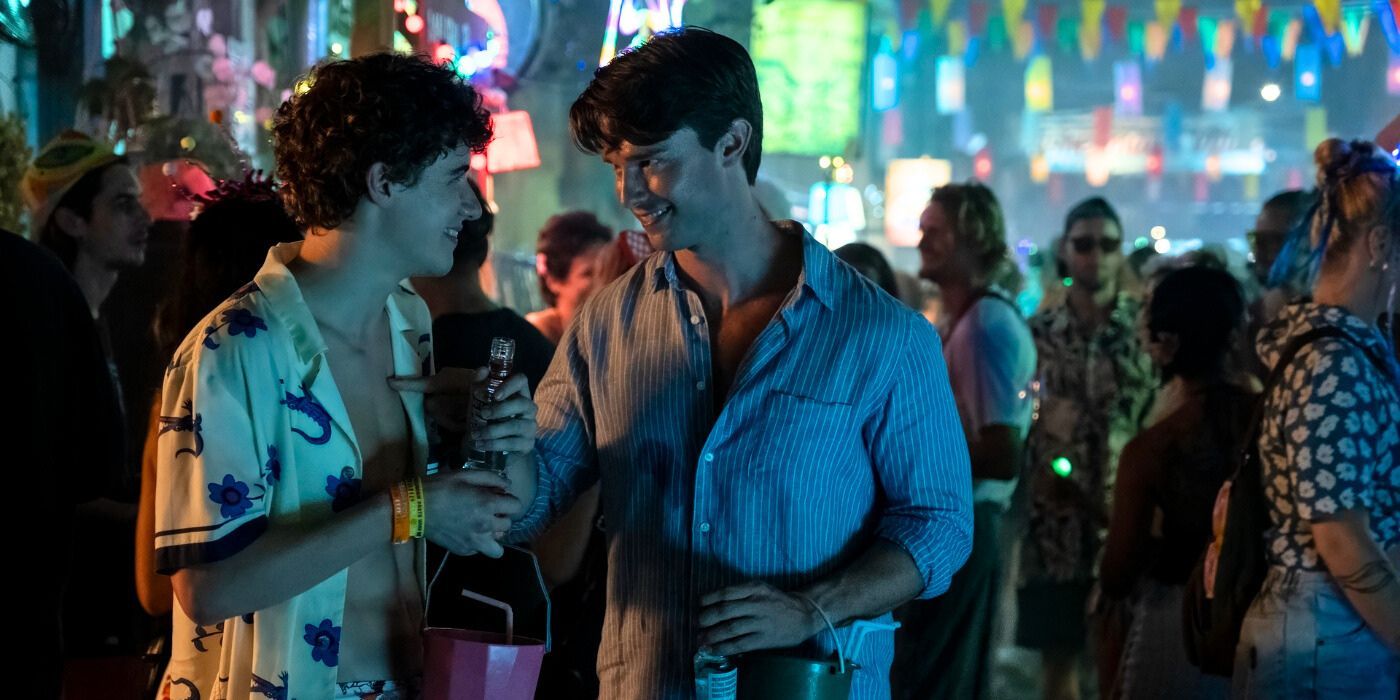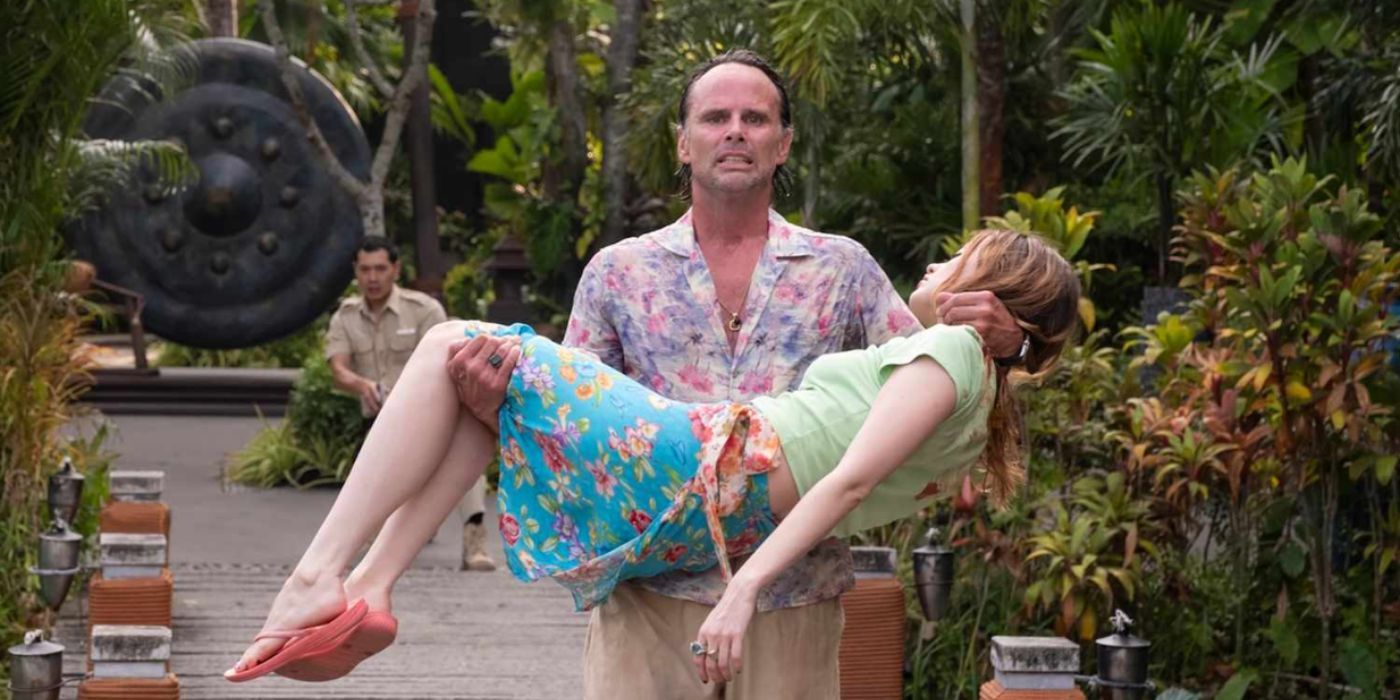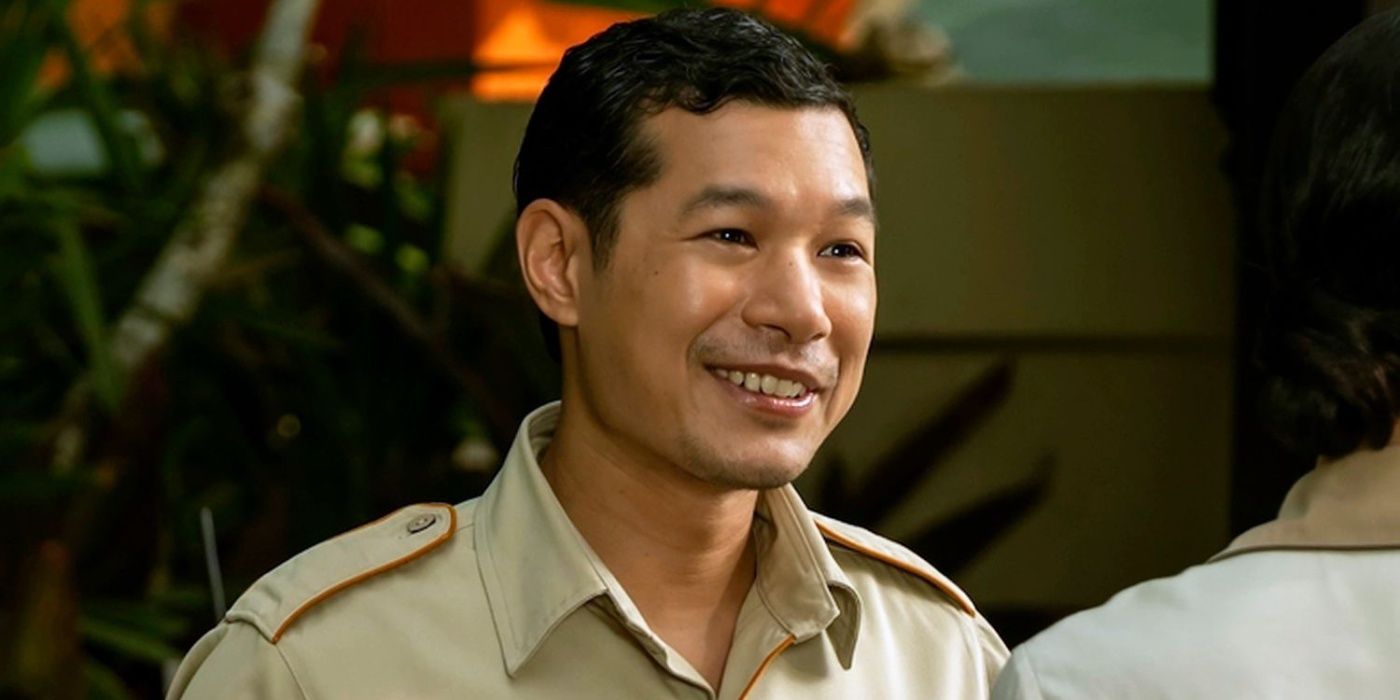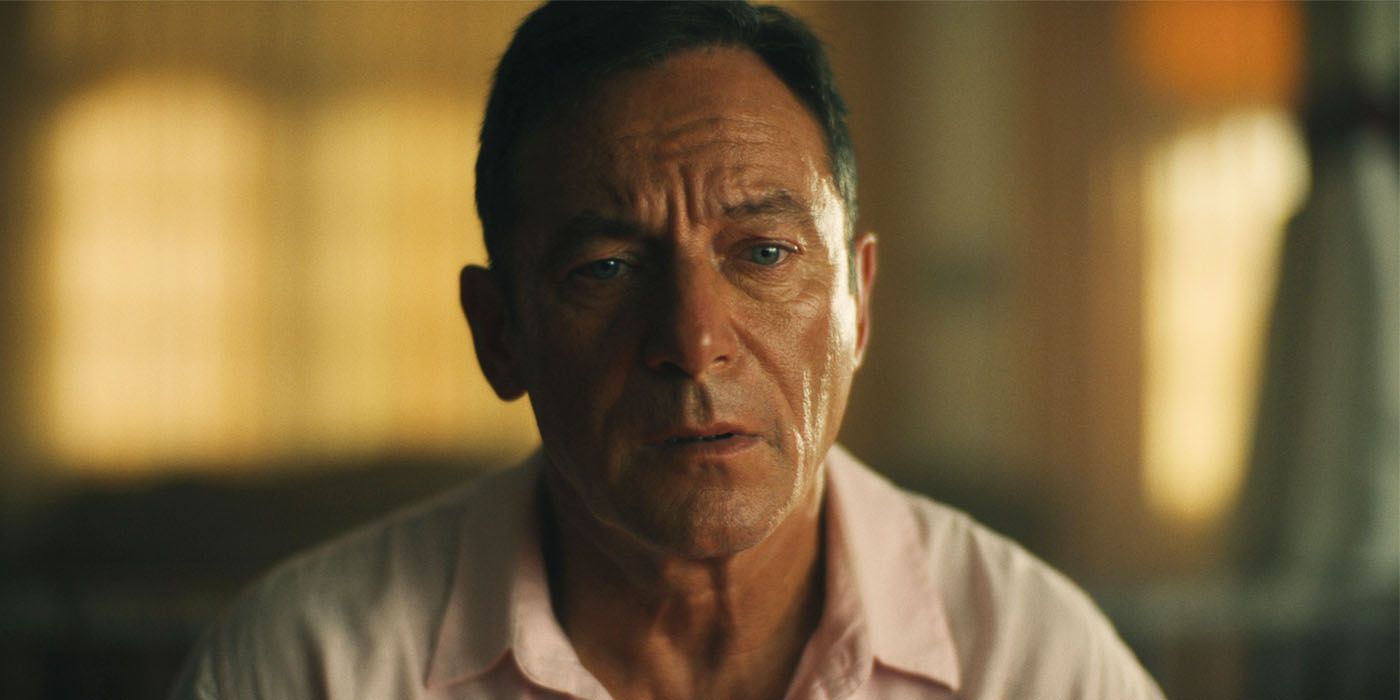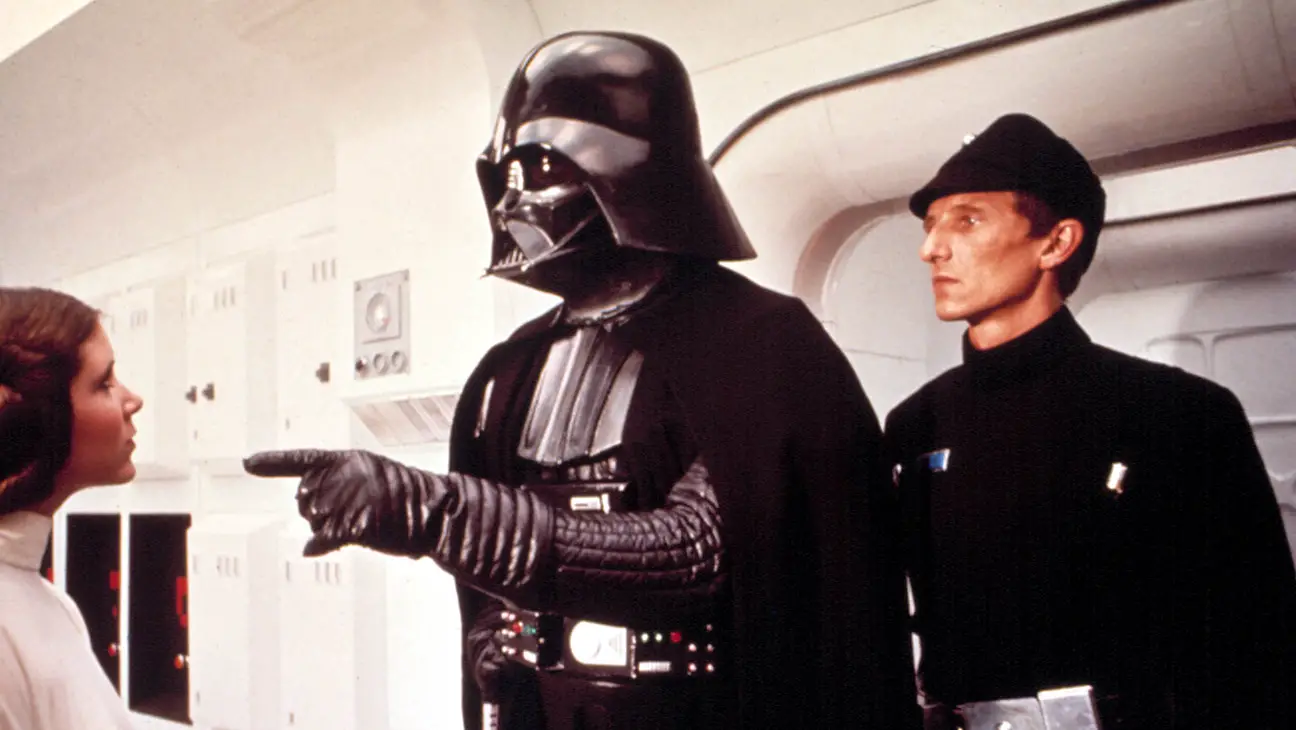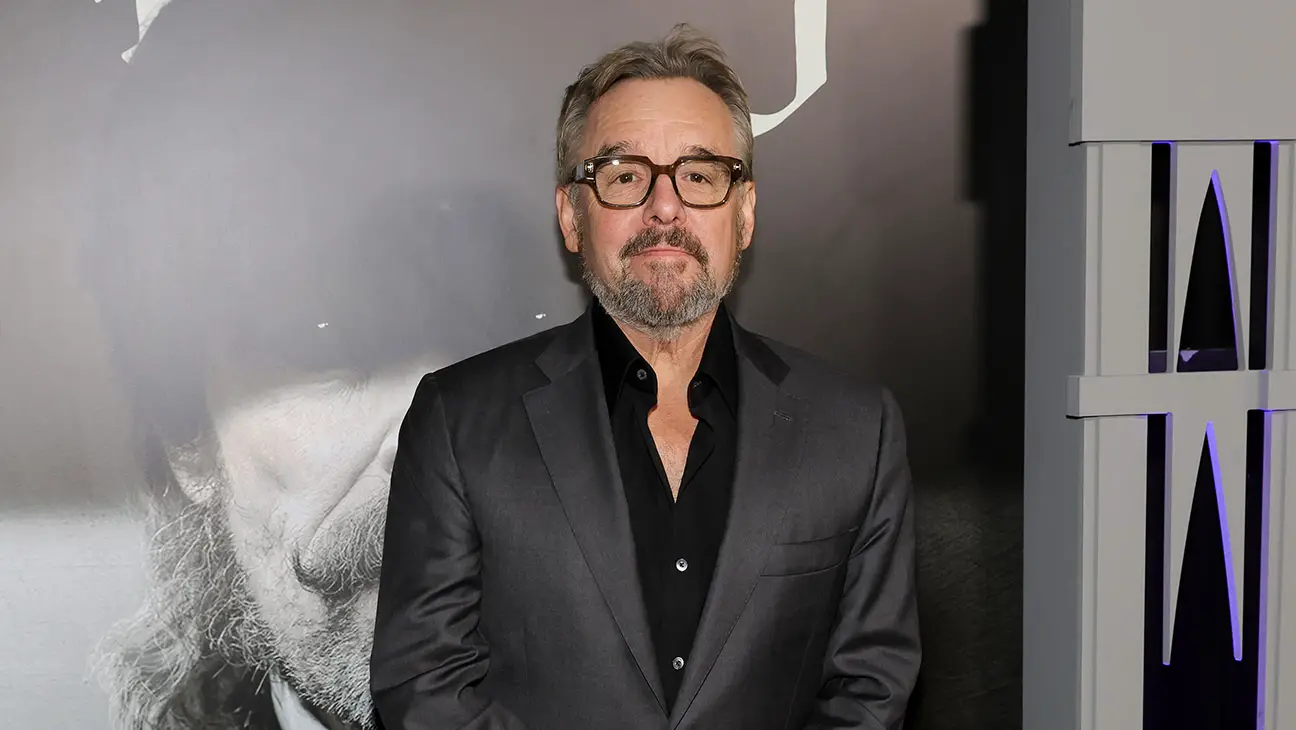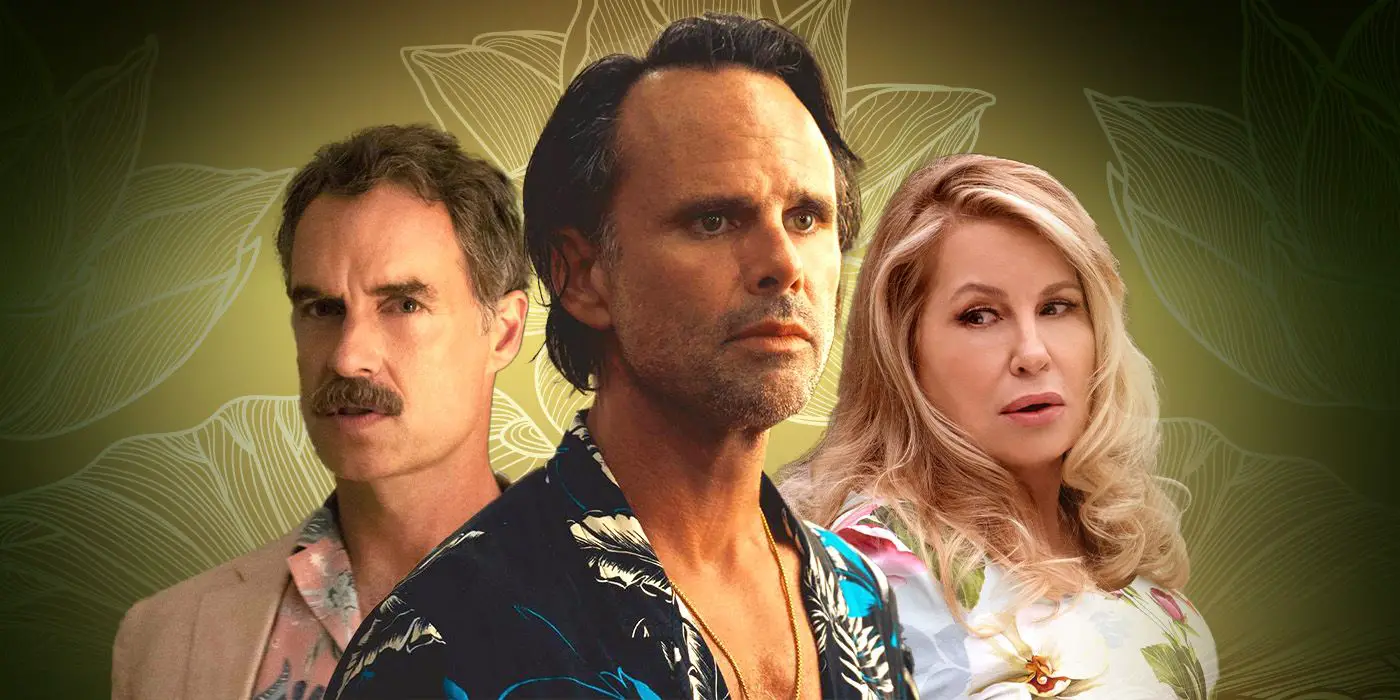
Before getting into the specifics, it’s important to note that this season had a lot of potential. The performances were as strong as ever, and there were some elements in the story that worked. As a whole, though, it felt incomplete in many ways. The following list conveys why season three of The White Lotus is by far the weakest one yet, ranging from the big-picture things like tone to specific character arcs that don’t really go anywhere. It’s difficult to rank these items, as most of them are very much connected in one way or another, and they’re all very significant. Together, they demonstrate the complexity of storytelling, how doing one thing in a less than ideal way can affect other parts of a story, and just how much comes down to the script. However, no matter how readers rank the following issues, we should be able to agree that someone of Mike White’s talent is surely capable of bringing a return to form in the next season.
10
Not Enough Humor
This Show Barely Felt Like a Satire This Season
Season 1 of The White Lotus may have been a comedy-drama, but it felt more lighthearted than not. Then came season 2, which was a little less playful but also boasted enough humor to still feel about equal-parts comedy and drama. With season 3, the tone is dialed down to the point where the series usually feels like a drama. There are three consistently funny characters who felt like notable exceptions: Frank (Sam Rockwell), who arrives rather late in the game; Victoria (Parker Posey); and Chelsea (Aimee Lou Wood).
But most of the humorous scenes are more grave than they should be. For example, when Rick (Walton Goggins) releases those snakes and Chelsea gets bitten, the whole thing is so darkly lit and constructed to put us in Rick’s troubled mind that what could have been played as more goofy and absurd felt more serious—even though we knew Chelsea wouldn’t die so early in the season. And when Frank tells Rick about his sex life, the scene is edited in a way that blends it with other, less amusing scenes in a self-serious way. If the series keeps going in this direction, season 4 won’t be any fun.
9
Too Slowly Paced
Barely Anything Happens in the Longest Season Yet
Season 3 had eight episodes, while the others had six and seven. More should happen with more time, yet season 3 proved the least eventful of them all. Timothy’s (Jason Isaacs) phone calls are good, but all he does afterward is walk around in his own world and consider suicide without any consequences. His theft and attempt to kill his family could have led to meaningful conversations, but they don’t. Piper (Sarah Catherine Hook) walks around, tells her parents why she’s really here, then backs out.
Rick takes way too long to face the guy he wants to kill—to the point where their meeting feels a bit anti-climactic. Gaitok (Tayme Thapthimthong) is supposed to be averse to confrontation, but he should have made short steps toward building his confidence. Instead, he mostly just talks to Mook (Lalisa Manobal) and rather effortlessly finds his missing gun. Then there’s the friend-trio who do practically nothing but talk about each other and have a few one-night stands that won’t affect their lives. As for Belinda (Natasha Rothwell), she recognizes Greg (Jon Gries) and has a meeting with him; not much else. Overall, this season would have been stronger if it were two episodes shorter.
8
Plot Holes
Lots of Things Either Don’t Make Sense or Aren’t Clear Enough
There were plot holes galore in the season finale, but the rest of the season sometimes also felt more like artifice than realism. For instance, why would Rick go to the trouble of tracking down Sritala (Lek Patravadi) and pretending he’s a Hollywood producer without having done the proper research on her movies?—especially when this mission to confront her husband means so much to him? And why does Jim (Scott Glenn), who has apparently been too ill to leave the house, travel to the White Lotus hotel and not tell Rick that he’s his father?
More examples: Why does Lochlan (Sam Nivola) not even slightly rinse out that blender when both his brother and his father made it clear they thought the milk had gone bad? No one should want to get drunk that badly, much less in the morning. And how does Lochlan live through it? Without knowing exactly how much of the beverage is fatal, the audience can’t feel the stakes. Along with details like Gaitok finding the stolen gun in the first place he looks and Rick not getting bitten by any of the many snakes he releases, the drama feels contrived, fake, and flat.
7
Too Many Characters
There Are So Many Characters that the Minor Ones Don’t Get Enough Screen Time
More doesn’t mean better, and this season of The White Lotus is a perfect example of the rule. This latest season had so many characters that many of them felt underdeveloped. It truly felt like the ensemble was stretched thin. Fans can only become so emotionally attached to so many people over one season of television, let alone one that only has eight episodes. Characters like Fabian and Amrita more or less drop off the map in the second half of the season, and characters like Mook feel like they were never seriously explored in the first place. It even takes a while to remember who’s who in the Kate-Laurie-Jaclyn trio: a Game of Thrones-level problem in a single, self-contained season.
Digging a bit into the numbers here, you can count the number of main characters from season one on Wikipedia: 11. Season two had 15, and season three had 17—not to mention the increasing number of minor characters throughout the series’ run. At this rate, season 4 will have too many people for viewers to remember half of their names, let alone care about their stories.
6
The Non-Guests Don’t Get Enough Character Development
Having Only Fully Rounded Characters in the Top One Percent Undermines the Satire
One of the things that made the first two seasons so good was how it showed the perspectives of characters both rich and not rich, as well as how those with more money wield their power over those beneath their socio-economic class. In season one, we had Armond (one of the best characters in the series) dealing with Shane, Belinda trying to keep Tanya’s attention, Rachel’s crisis, and Kai’s attempt to afford a lawyer. Season two showed Mia and Lucia attempting to get out of sex work, Portia dealing with her boss, and Tanya’s revelation about her husband.
There were lots of insights from the tremendous wealth gaps here, but most of the lower-class characters in season three are dull: Gaitok only changes in the final few minutes of the finale (and awkwardly), Mook is nothing more than an object of Gaitok’s affection, Pornchai is just a significantly less-developed version of season-one Belinda, and Fabian’s story goes nowhere. Chelsea and Belinda don’t come from money, but only Belinda’s arc has something interesting to say about class. Overall, the series’ critiques have much less bite if the less-privileged characters get less attention.
5
The Three Girlfriends Feel Irrelevant to the Overall Narrative
Kate, Jaclyn, and Laurie Seem Utterly Detached from the Rest of the Main Characters
Kate (Leslie Bibb), Jaclyn (Michelle Monaghan), and Laurie (Carrie Coon): these three are given nothing to do but gossip. Two of them sleep with a few of the men who robbed the jewelry store, and Laurie is with Valentin (Arnas Fedaravicius) when Gaitok recognizes him, but Gaitok doesn’t do anything about it. So, what’s the point of connecting these women to the Russian guys? Technically, Laurie could have gotten jealous of Jaclyn for sleeping with some other random guy who had nothing to do with anything, while Gaitok could have never figured out who the robbers were. Nothing about the finale would really change.
These three friends essentially have nothing to do with the rest of the main characters. Though the trio is right there when Rick shoots Jim, we never see them talk about what happened—and it doesn’t seem to affect any of them. Likewise, they certainly don’t affect the shootout; Mike White could have had Sritala and her husband chatting with complete strangers when Rick walks up to him. In the end, these three felt like they were side characters with the screen time of main characters, making every episode feel less cohesive.
4
Unnecessary Taboo
In the End, the Incest Felt Mostly like Shock Value
Saxon (Patrick Schwarzenegger) gets peer-pressured into taking drugs that are too strong for him, which leads to a threesome with his younger brother. This unsurprisingly became a controversial storyline, with people asking if incest went too far. Arguably yes, though it didn’t have to be. The Ratliffs’ dependence on their wealth and North Carolina roots to feel comfortable, which is explicitly admitted by everyone in the family but Lochlan, is made all the more problematic by the patriarch’s lucrative job having led them all into an impending situation of poverty and infamy. The incest can therefore be interpreted as a metaphor for the family’s toxic and fragile socio-economic bubble.
Strangely, Saxon is the only one affected by the threesome. Furthermore, without a candid conversation about what their father has done to the family, this controversial scene feels somewhat unexplored. Saxon could have been similarly traumatized by taking drugs and having relations with some other guy, and it wouldn’t change that much. A deleted part of a scene has Piper comparing the family to an incestuous cult, which would have brought more economy to this issue. Given the final cut, though, the incest feels more shocking than thought-provoking.
3
Characters Don’t Get to Respond to the Shooting Spree
Characters Either Not Learning Or Caring That Others Died Makes the Narrative Feel Incomplete
Belinda, Zion, Amrita, the female friend-trio—they’re all caught up to some extent in the shootout. However, it’s not clear why the show even bothers to include them in the scene, since none of them seems affected whatsoever by it once the tragedy is over. Lack of realism aside, let’s approach this from a storytelling angle: What’s the point of having these people get thrown into the middle of a mass shooting if their final scenes make it seem as though it never happened?
By extension, a few of those characters had enough of a relationship with Chelsea to merit a significant response upon learning about her death. Specifically, we ought to see Saxon and Chloe (Charlotte Le Bon) find out about Chelsea. The former went from being her potential lover to her spiritual protégé, and the latter was her closest friend by far throughout the entire season. Chelsea’s death would affect them both, maybe even lead them to make certain choices about their lives, but we don’t even know if they know she’s dead. This makes their arcs (as well as Chelsea’s) feel incomplete.
2
Gaitok’s Character Never Confronts Anyone
Just Because He Got that Promotion Doesn’t Mean He Deserves it
There is a character arc, and then there’s whatever Gaitok has: a character plateau, maybe. He’s a submissive security guard at the White Lotus hotel, even when his superior gives him a gun. After Timothy steals it, Gaitok only manages to steal it back in clandestine fashion—which requires no real confrontation or inner-growth. Meanwhile, the only reason that Gaitok wants to improve his station is to impress his crush, which makes for a repetitive and superficial dynamic between them throughout the season.
In the finale, he doesn’t have it in him to report Valentine and his pals; and he winds up shooting Rick when the guy is in the least aggressive stance possible. Furthermore, he only does it after his boss repeatedly shouts at him, which doesn’t really make him any more competent than before. Also, since Gaitok finally has the gumption to shoot a man, does that mean he also goes to the authorities about Valentine? He ought to, right? But Mike White doesn’t even show that much, making Gaitok’s promotion, success with Mook, and apparent satisfaction feel unearned.
1
The Show Lets Tim Off the Hook Way Too Easily
The Ratliff Family’s Story Feels Unfinished, Lazy, and Thoroughly Unsatisfying
Despite having arguably the most intense storyline of the season, Timothy Ratliff’s arc yields no emotional payoff whatsoever. After learning that a bad business deal has landed him with frozen accounts and inevitable prison time, he contemplates suicide. This only gets worse as he gradually hears from the rest of his family (except Lochlan) that they wouldn’t be able to go on if his business went under. He even comes up with a plan to kill his family (again, except Lochlan), but he’s able to abandon it and finally comes to the mentality that they can get through this.
Bizarrely, we never actually get the other Ratliffs’ responses to their predicament, and that’s a problem. Just because Tim has found peace with the situation doesn’t mean that anyone, let alone everyone else, will. Each of the other Ratliffs deserves to have their own reaction to this news, so making this a conflict that only happens to Tim doesn’t just make it dramatically dull; it’s narrow-sighted. It’s an evasion of a necessary reckoning that could change his mind again about suicide. Overall, it’s the biggest anti-climax of a surprisingly weak season.
About The Author
Discover more from imd369
Subscribe to get the latest posts sent to your email.
